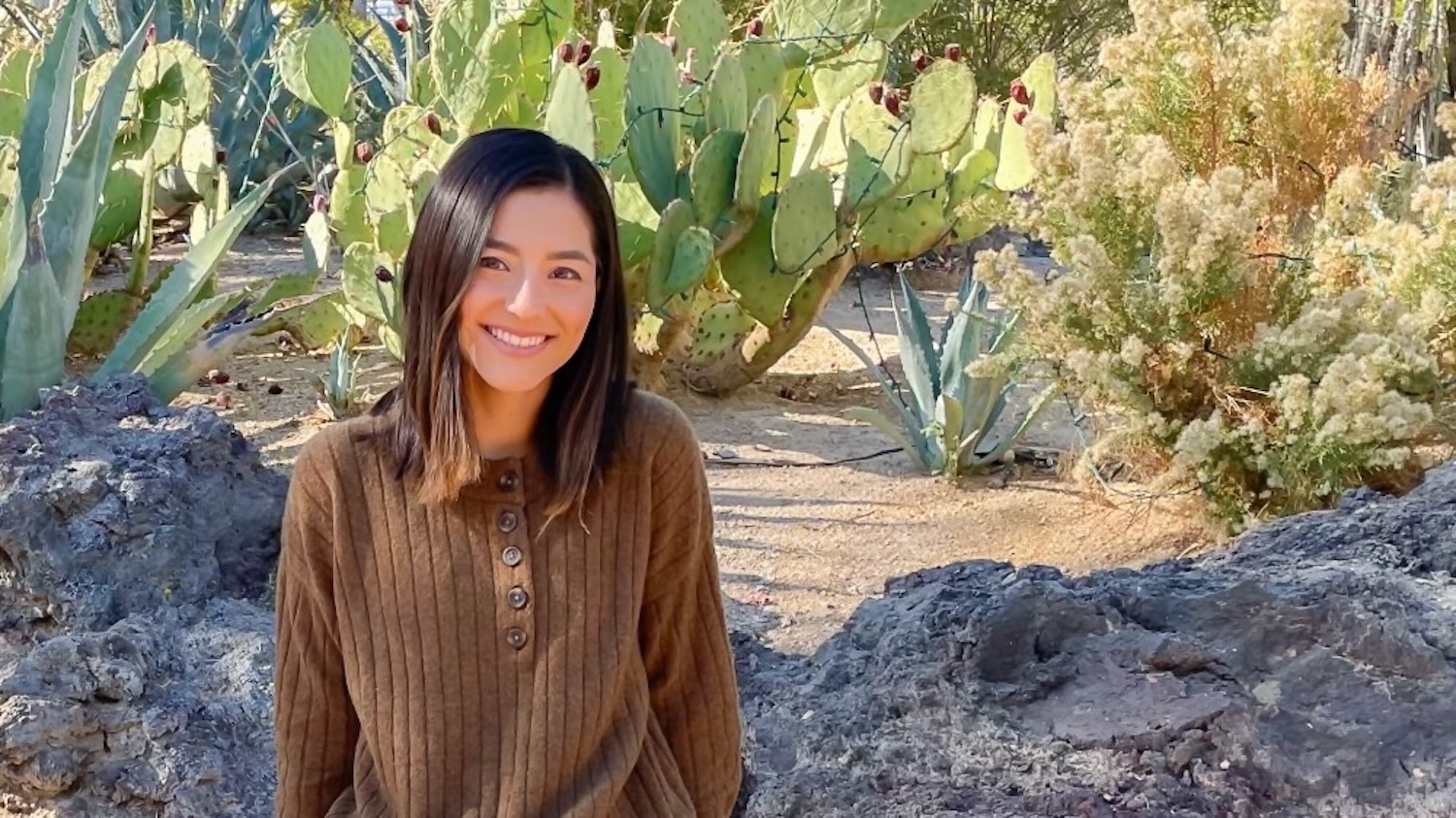Researcher Spotlight – Julianna Duran-Jolley

2023-24 Global Change Research Fellow
MSc Student, Department of Parks, Recreation, and Tourism Management
Advisors: Lincoln Larson
About You
What do you study?
My research is focused on the process of identifying and redressing instances of environmental injustice. Specifically, I am committed to capturing the perspectives of community members in Louisville, Kentucky regarding how greening efforts, such as tree planting, may inadvertently lead towards further injustices such as gentrification and displacement. We aim to construct a community narrative and develop a toolkit to inspire organizational and political reform in the field of urban environmental planning.
What (or who) influenced you to go into this field of study?
As a queer Latina and first generation academic – I understand what it is to be unique and underrepresented. My academic journey initially exposed me to traditional environmental conservation, but it soon became clear that lasting change requires the active involvement of community members. Furthermore, the silencing of systematically marginalized groups has hindered the incredible potential of conservation efforts. Upon reflecting on my own experiences and those of other underrepresented groups, I have made diversity, equity, inclusion, and justice the primary pillars of my research.
What do you think is the most pressing issue related to global change?
The way we communicate this in our own research and with the public! As a social scientist, prioritization of understanding and documenting human behavior is key. It is critical that we embrace social science methodologies with traditional climate monitoring to create a comprehensive and long-lasting plan for the future. This integration will not only enhance our overall strategies surrounding climate change, but also enable us to amplify racial and ethnic groups that are disproportionately impacted by climate change and typically excluded from mainstream scientific discussions.
About Your Research
What is the most important thing that you’ve learned?
The most eye-opening insight I’ve gained from my research so far is that advocacy for green infrastructure is widely regarded as a “universal good” due to its provision of ecological services. However, the social implications of these greening initiatives are frequently disregarded unless viewed through a justice- oriented lens. Acts of greening, such as tree-planting efforts, are cost effective ways of supporting [underserved] neighborhoods. Yet an innocent effort to create improvements to natural amenities can bring rise to green gentrification. It’s important that we learn to see conservation from multiple perspectives and angles to best understand its consequences for both people and the environment.
Who will benefit from your research?
Most importantly for my current research are the diverse community members in Louisville, Kentucky. Our research, conducted in collaboration with the U.S. Forest Service aims to extend its positive impact beyond Louisville though! We aspire to leverage our findings and deliverables, including publications and a best practice toolkit on urban greening, to foster positive outcomes for urban communities across the United States. This endeavor is driven by the overarching goal of promoting more equitable practices nationwide.
How would you describe your research to a 3rd grader?
My work is on trying to make the environment fair and safe for everyone! I’m from the city, so I want to help others who are from these places, too. Cities don’t always have lots of parks or trees to play on, but lots of people want to add these. Sometimes though, adding these spaces makes some people happy and others sad. What I do is ask lots of different people what they think about parks and trees in their neighborhood to make sure that we know what the people want or need.
About Your Global Change Research Fellow Experience
How do you expect the SE CASC Global Change Research Fellows Program to impact you and your work?
The Global Change Fellows program has been the perfect way to not only network with others in the field, but to also exchange knowledge and think critically about our current global challenges. In addition to the incredible skills I have learned so far, the new and professional connections I have made throughout this program have brought about new and critical perspectives to my project and beyond – both from my fellow cohort and guest lecturers. I believe these opportunities are strengthening my overall research and preparing me to communicate it productively.
What advice would you give to a student that is interested in getting involved in your field?
Environmental Justice is a very noble cause and we need more folx to join us in researching and creating change in this sector! I advise you to consider diversity, equity, and inclusion in your research no matter the central theme though. Every project deals with a social issue – you just need to find it. Use your time to truly make a difference for others by considering this field, actively learning from BIPOC voices, and keeping an open mind.
What has been the most rewarding part or your favorite part of being a SE CASC Global Change Research Fellow?
I really appreciate the work being done to decolonize science! It’s not common for researchers to spend time with and learn from Indigenous leaders to change how we think about conservation. It feels great to see things from a new point of view and bring attention to what has been left out of our history in this field.
Learn more about the Southeast Climate Adaptation Science Center’s Global Change Research Fellows program.
This post was originally published in SE CASC.